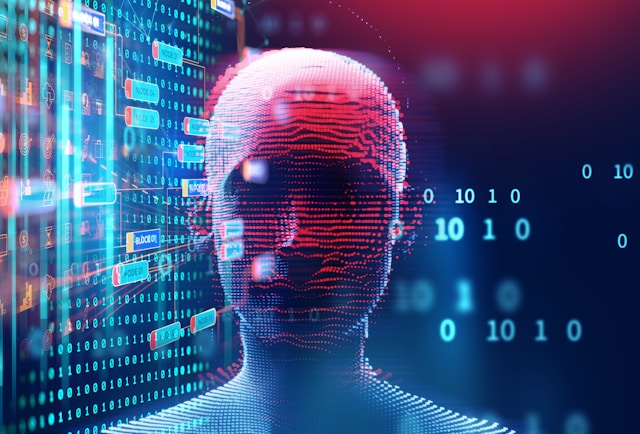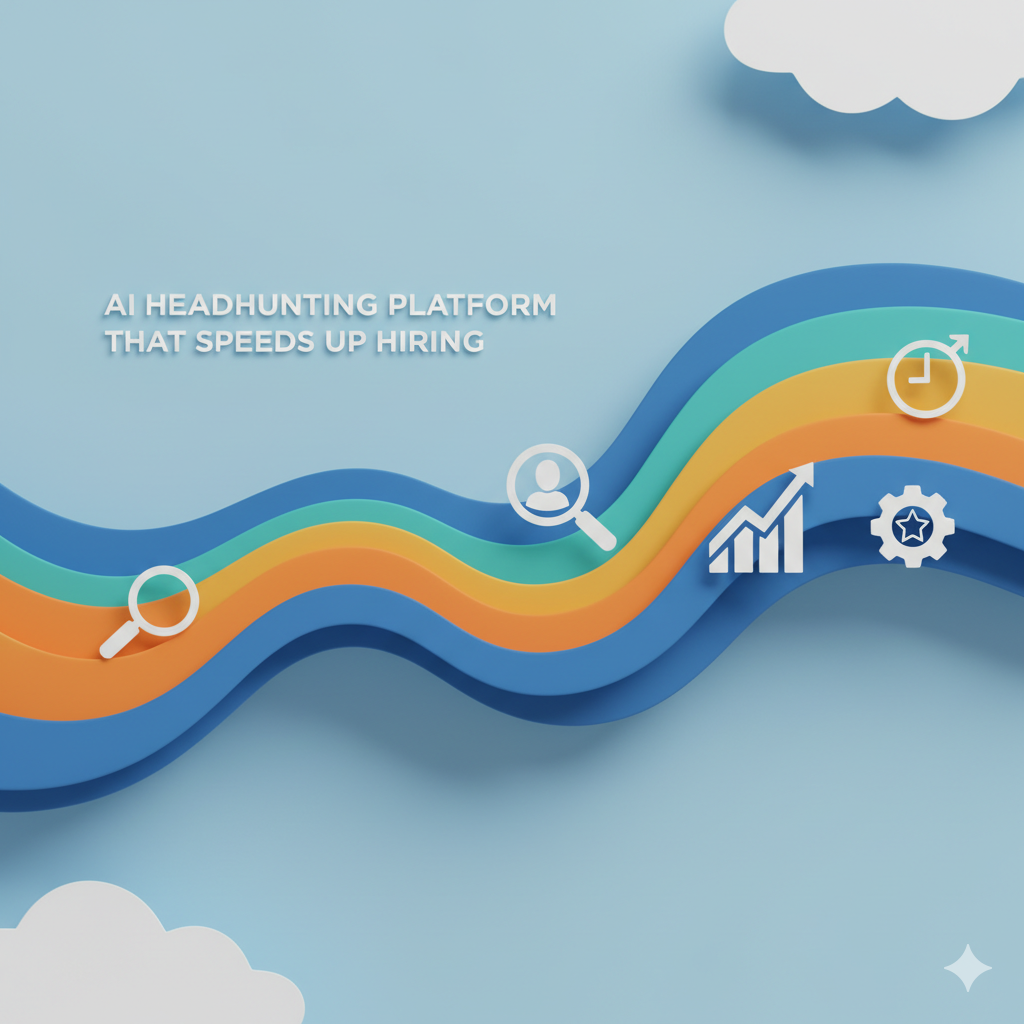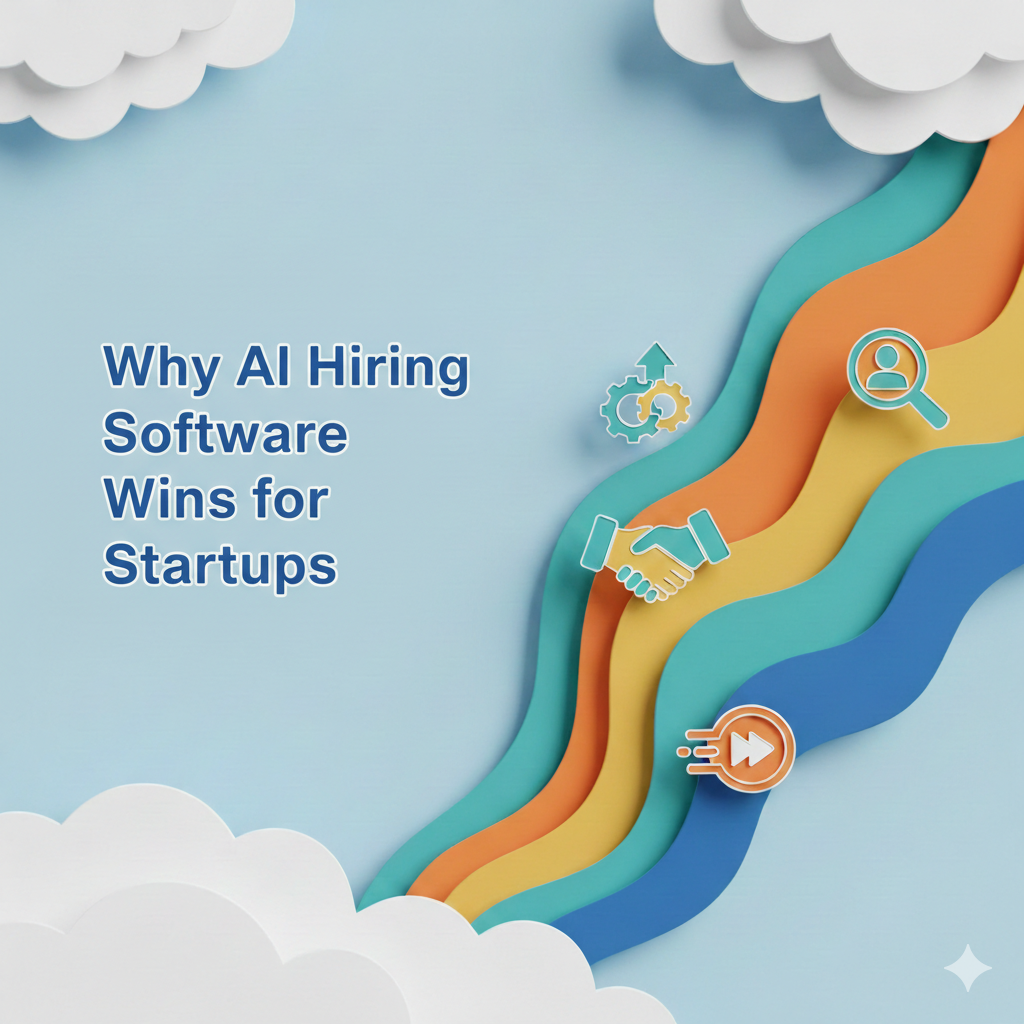AI Hiring Tools: Enhancing Recruitment Efficiency and Accuracy

Have you ever felt like sorting through applications is eating up your entire day?
AI hiring tools are designed to address this issue. They speed up recruitment by automating repetitive tasks, such as screening, scoring, and scheduling, giving you more time to focus on what really matters: connecting with top talent.
Instead of wasting hours on mismatched resumes, these tools help you zero in on qualified candidates. Platforms like HRMLESS let you engage candidates 24/7 with automated interviews and real-time messaging, so your hiring process keeps moving, even when you're not at your desk.
This constant engagement means fewer no-shows and faster decision-making. With seamless ATS integration, you don’t have to change your workflow, just improve it.
And here’s what really stands out: by reducing bias and ghosting, AI hiring tools build a fairer, more scalable hiring process that grows with your business.
In this blog, we will talk about:
- What AI hiring tools do and how they improve recruitment workflows
- The key features that make platforms like HRMLESS powerful and efficient
- How to choose, implement, and benefit from AI without losing the human touch
Let’s break it down and explore how AI can truly transform the way you hire.
What Are AI Hiring Tools?
AI hiring tools help automate and improve key recruitment processes. They manage tasks like screening candidates, scheduling interviews, and keeping candidates engaged. These tools use data and smart algorithms to find the right hires faster, reducing bias and errors.
Definition and Core Features
AI hiring tools are software platforms that use artificial intelligence to support recruiting teams. They automate tasks such as screening resumes, scoring candidates, scheduling interviews automatically, and engaging candidates via SMS or email.
These tools save you time by handling routine work and improve quality by focusing on candidates who meet your job requirements. Many tools integrate with your applicant tracking system (ATS) so you don’t disrupt your hiring flow.
How AI Powers the Hiring Process
AI works by analyzing large amounts of data quickly. It ranks candidates based on skills, experience, and fit without human bias.
AI can also conduct 24/7 pre-screening interviews, allowing candidates to respond on schedule. Automated scheduling reduces “no-shows” by only letting engaged candidates book time. With features like real-time analytics, you see exactly where delays happen.
Types of AI Used in Recruitment
Different AI methods power these tools, including:
- Machine Learning: Learns from past hires to predict which candidates will succeed.
- Natural Language Processing (NLP): Understands and evaluates written and spoken candidate responses.
- Chatbots and Conversational AI: Engage candidates instantly, answering questions and guiding them through steps.
These technologies combine to create a smooth experience for you and your candidates. Several platforms use this mix to eliminate ghosting and bias, so you focus on top talent quickly.
Key Benefits of AI Hiring Tools
AI hiring tools give you faster, fairer, and cheaper ways to find the right candidates. They handle tasks that save your time and reduce errors. These tools make your recruitment process smoother and improve the quality of hires.
Improved Efficiency in Recruitment
AI hiring software automates many manual tasks like screening resumes and scheduling interviews. This means you spend less time sorting through applications and more time focusing on top candidates.
Tools like HRMLESS use AI to pre-screen candidates 24/7, so you can engage with talent instantly. Automated scoring helps you quickly identify who fits best for your role.
Integrating AI with your ATS keeps your process organized and reduces bottlenecks. Efficiency gains can cut your time-to-hire by over 60%, speeding up your recruitment.
Bias Reduction and Enhanced Fairness
AI tools help reduce human bias by using consistent criteria to evaluate candidates. This levels the playing field for applicants, regardless of background.
You avoid unconscious preferences by letting AI score candidates based on skills and experience alone. Our AI-driven interviews ensure all candidates face the same questions, reducing subjective judgments.
While AI can help bring fairness, human judgment still plays a role.
Cost and Time Savings
Automated recruitment tools reduce the hours spent on repetitive tasks. For example, automating scheduling alone saves about 2.7 hours per hire.
AI minimizes no-shows by inviting only engaged candidates to book interviews, lowering wasted time. You also spend less on external recruiting because AI helps you screen efficiently in-house.
You can hire more candidates without adding stress or increasing your budget by saving time and cutting costs.
Core Functionalities of AI Hiring Platforms
AI hiring platforms save time and improve hiring results by automating key steps. They help you quickly find the best candidates, reduce bias, and keep the process organized and fast.
Automated Resume Screening
Automated resume screening sorts through large volumes of resumes in seconds.
Using AI, the system scans for relevant skills, experience, and keywords based on your job description. This reduces manual work and immediately highlights qualified candidates. It also reduces bias by using consistent criteria for every applicant.
Instead of relying on who types the best resume, the AI focuses on fit and qualifications alone. You get a clear shortlist faster with less risk of missing good candidates.
Our platform scores and filters resumes automatically. You can see the top-ranked applicants ranked by how well they match your needs, saving hours of sorting time.
Candidate Matching Algorithms
Candidate matching algorithms compare applicants' profiles to your job requirements in detail. These tools analyze skills, education, work history, and more to rate each candidate’s suitability.
This goes beyond keyword searching; it finds relevant experience and predicts success based on data patterns. The AI dynamically adjusts rankings as you update criteria or add candidate feedback.
Matching algorithms help you avoid bad hires and narrow your pool to only strong fits. It also reduces human bias by focusing on objective data.
Interview Scheduling Automation
Scheduling interviews can be a significant bottleneck. Automated scheduling handles all booking and calendar management for you.
Candidates can choose interview times based on their availability without needing to exchange emails or calls. This reduces no-shows and late cancellations by allowing instant confirmation and reminders.
Automated tools also integrate with your calendar and ATS to keep everything synchronized. By eliminating manual scheduling tasks, you save significant time, often over two hours per hire. Plus, candidates appreciate the smooth and fast booking process.
AI-Powered Candidate Assessment
AI-powered tools help you quickly understand candidate skills and predict success in the role. These systems offer detailed evaluations and data-driven insights that remove bias and speed up your hiring. Automation here means less manual work and better decision-making.
Skill and Competency Evaluation
AI systems test candidates on relevant skills and knowledge linked to the job.
They can use quizzes, simulations, or real tasks to see how well someone performs in key areas. This allows you to compare candidates fairly and objectively. Such tools analyze results instantly, ranking candidates based on their abilities.
This eliminates guesswork in screening and ensures you focus only on qualified applicants. You can also customize assessments to match different job needs, making it easier to identify who fits best.
Using our platforms, you get automated scoring, so you don’t spend hours reviewing tests.
Predictive Analytics for Candidate Success
Predictive analytics uses data from assessments, resumes, and past hires to forecast a candidate's likelihood of success. These models look at patterns and flag those with the highest potential for the role.
You gain insights beyond basic qualifications, such as cultural fit and long-term performance indicators.
AI tools update predictions as new data arrives, letting you adjust strategies quickly. For example, HRMLESS integrates these insights to prioritize skilled candidates who are a strong match for your team culture.
Popular AI Hiring Tools on the Market
Choosing the right AI hiring tool means examining how well it handles screening, scheduling, and engagement. Some tools focus on speed and automation, while others excel at candidate quality and bias reduction.
The most effective platforms combine these strengths to save time and improve hiring results.
Overview of Leading Solutions
Top AI hiring tools automate resume screening, interview scheduling, and candidate communication.
Many platforms offer 24/7 AI-driven pre-screening interviews so that candidates can engage independently. This reduces ghosting and speeds up your hiring process. You’ll find tools with features like AI scoring to highlight top applicants quickly.
Integration with ATS and HRIS systems keeps your workflow seamless. Some solutions emphasize reducing bias by automating candidate filtering and engagement through AI-powered messaging.
Many also offer dashboards with real-time analytics to track hiring bottlenecks and candidate progress in one place.
Unique Features of Top Platforms
Leading AI hiring platforms stand out by offering a mix of automation, speed, and candidate quality. Common features include:
- Automated Interview Scheduling: Cuts no-shows by inviting only engaged candidates to book.
- AI Scoring & Filtering: Surfaces top talent instantly without manual review.
- Multi-Channel Candidate Engagement: Sends SMS and email nudges to keep prospects moving.
- 24/7 AI Pre-Screening Interviews: Let candidates complete interviews anytime, shortening time-to-hire.
Some platforms also provide advanced options like voice engagement, bringing a human touch to AI interviews. Your choice depends on which features fit your hiring volume and goals.
Our tool, for example, uses Nerva AI to automate these tasks, saving you hours per hire and allowing you to scale without extra stress.
Challenges and Limitations
AI hiring tools can speed up your process and improve candidate quality, but they also have some critical issues. These tools may sometimes show hidden biases, and understanding how decisions are made can be difficult. Both can affect the fairness and trustworthiness of your hiring system.
Managing Algorithmic Bias
AI systems learn from past hiring data, which can carry biases based on race, gender, or age.
If your AI tool follows these patterns, it may unfairly screen out qualified candidates. This creates risks like discrimination and legal problems. To manage bias, use diverse and updated data sets.
Regularly test your AI’s decisions for fairness. You should combine AI results with human judgment to catch errors or unfair choices.
Tools like ours focus on removing bias by automating screening and scoring fairly. Still, no AI is perfect, and you must monitor the process to ensure equal hiring for all candidates.
Transparency and Explainability Issues
AI often acts as a “black box” where you can’t see precisely why it made a particular decision. This lack of transparency can make it hard to trust AI hiring tools.
You need clear insights into why candidates are scored or rejected. Explainability helps you defend your hiring choices if questioned and improves candidate experience by providing feedback.
Some platforms offer dashboards or reports that show key factors influencing AI decisions. Our tool uses real-time analytics so you can track candidate progress and spot potential problems early.
Without transparency, you risk losing the trust of hiring teams and candidates, which can harm your company’s reputation.
Best Practices for Implementing AI in Recruitment
When using AI hiring tools, pay close attention to how you manage the data and track performance over time. These factors help you get the most from AI while keeping your hiring fair, secure, and efficient.
Ensuring Data Quality and Security
Your AI system depends on high-quality data to make accurate decisions.
Ensure your data is complete, clean, and up to date before feeding it into any AI hiring tool. Poor or biased data can lead to unfair candidate evaluations. Protecting candidate information is also critical.
To keep sensitive details safe, use strong encryption and comply with data privacy laws like GDPR or CCPA. Secure data storage and clear data access policies reduce the risks of breaches that could harm your brand or candidates.
At HRMLESS, data protection is built into the platform to safeguard your hiring process.
Continuous Monitoring and Improvement
AI tools are not “set it and forget it.” Regular monitoring is key to maintaining accuracy and fairness.
Review hiring outcomes and candidate feedback to check the AI's performance. Look for signs of bias or errors creeping into your process. Conduct audits to spot unfair patterns in candidate scoring and adjust algorithms as needed to stay balanced. Collect real-time data on response rates, no-shows, and time-to-hire.
Use these insights to fine-tune your AI workflows for speed and quality. Our tool provides dashboards and alerts that make tracking easy.
The Future of AI in Hiring
AI hiring tools are changing how you find and select candidates. In the future, these tools will work even faster and smarter, saving you time and effort. You will see more automation in screening, scoring, and scheduling. This lets you focus on the final decisions.
Human-AI collaboration will be key. AI can handle initial filtering to spot candidates with the right skills. Meanwhile, you evaluate softer skills like culture fit and communication. This balance helps keep the process fair and efficient.
Benefits you can expect:
- 24/7 AI interviews let candidates complete assessments anytime.
- Automated scoring highlights top candidates quickly.
- Instant SMS and email engagement keep candidates moving forward.
- Reduced no-shows with automated scheduling.
Our tool leads this trend by automating busywork and significantly reducing ghosting. It's Nerva AI powers real-time candidate engagement and deep integration with your ATS. This means less hassle and a faster time to hire. As AI hiring software improves, bias decreases, and candidate quality rises.
You’ll reach more candidates without extra effort. Real-time analytics will track every step, so you always know where bottlenecks happen.
Wrapping It Up
AI hiring tools aren’t just a trend; they’re a more innovative, faster way to build your team with confidence. By automating the busywork, reducing bias, and surfacing top candidates instantly, you create a recruitment process that’s efficient, fair, and future-ready. Platforms like HRMLESS take the guesswork out of hiring by engaging candidates 24/7, syncing with your ATS, and helping you cut time-to-hire by over 60%.
If you want to scale your hiring without the chaos, it's time to meet your AI interviewer.
Book a demo or start your free trial with HRMLESS today, and see how effortless hiring can be.
Frequently Asked Questions
Still curious about how AI hiring tools actually work in the real world? Let’s tackle a few common questions you might ask as you consider integrating automation into your hiring process. These quick answers offer extra clarity and practical tips beyond what we’ve covered above.
How do AI hiring tools handle remote and hybrid job applicants?
AI tools can evaluate candidates regardless of location by focusing on skills, experience, and availability. Features like asynchronous video interviews and automated scheduling make it easy to assess remote talent across time zones, without slowing down your process.
Can AI help re-engage past candidates in our talent pool?
Some AI platforms can re-target past applicants based on updated job matches. Tools like HRMLESS use automated SMS and email nudges to reconnect with qualified leads who may now be a better fit.
Do candidates know when they're interacting with AI?
In most cases, yes. Candidates are typically informed that they’re completing an AI-powered interview or receiving automated messages. This transparency builds trust and improves experience, especially when tools offer human-like engagement through voice or chat features.
What kinds of roles are best suited for AI-powered hiring?
AI works well for high-volume roles like customer service, retail, or entry-level tech. It’s especially effective where structured data, like skills and experience, can be clearly matched to job requirements. For senior roles, it supports but doesn’t replace human evaluation.
Can AI hiring tools improve diversity hiring efforts?
Absolutely. AI can reduce unconscious bias by removing identifiers like names or locations during screening. These tools can support more equitable hiring outcomes across diverse candidate pools when combined with fair data practices and consistent evaluation criteria.
Featured
Subscribe to ournewsletter
Related posts
Explore the world of photography with our curated selection of
portfolio websites that showcase creativity and innovation.




